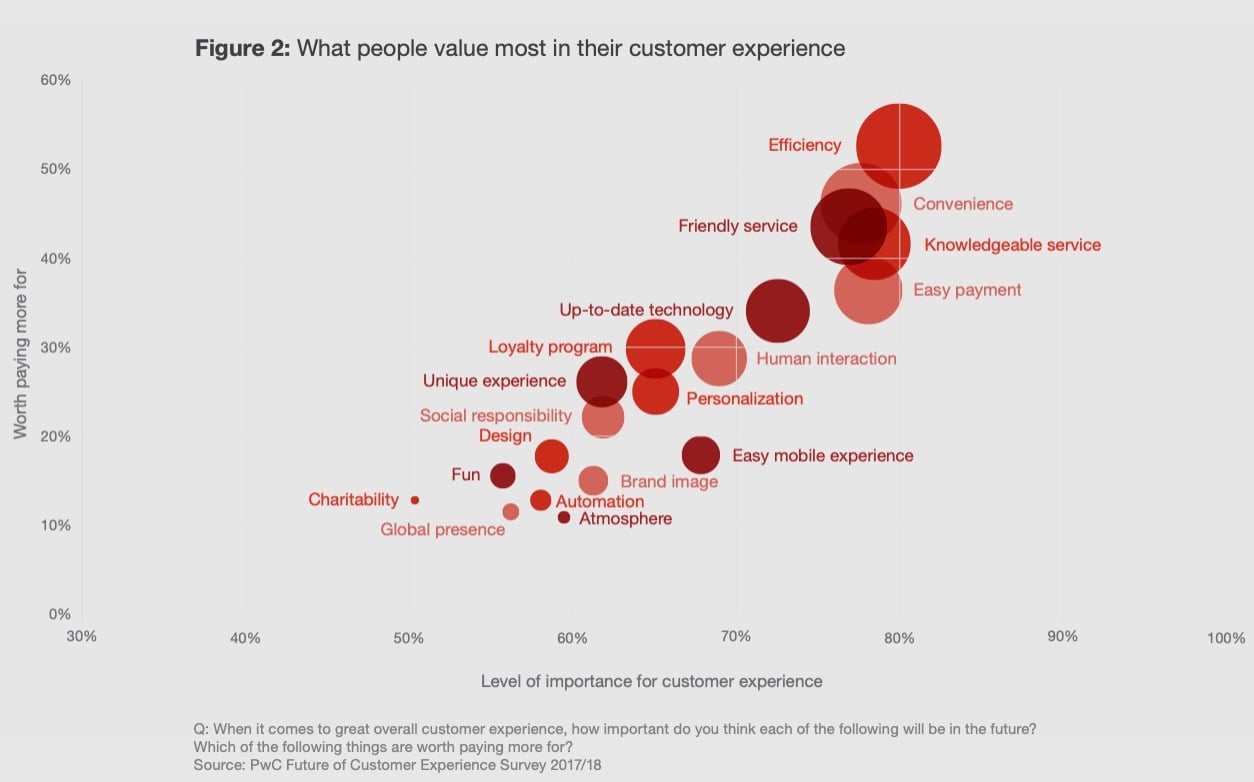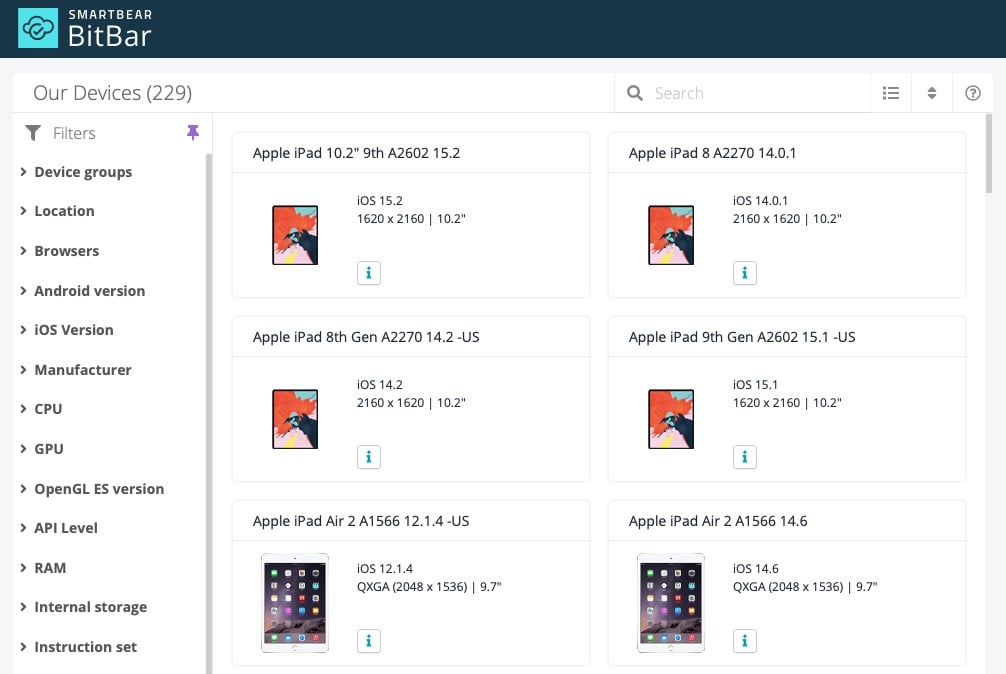Most people have encountered frustrating software errors. While the Windows "blue screen of death" was a necessary evil in the 1990s, customers have much more choice in today's software-as-a-service market. A single error or broken workflow is often enough for a would-be customer to switch over to a competitor.
Of course, many software businesses mitigate these risks through testing and quality assurance. But unfortunately, the increasing complexity of today's software applications and the growing number of devices and operating systems make testing a challenge. The good news is that new solutions can help address these challenges head-on.
Let's examine why software quality is critical to success in today's market and the most effective ways to ensure a great customer experience.
The customer experience has become the most critical differentiating factor for software businesses – maintaining a high-quality level is essential to provide a great experience.
Why Quality Matters
Customer experience plays an increasingly vital role in the success of any software business. According to PwC, customers are willing to pay up to a 16% price premium for a great experience. But, one-third of customers would walk away from a brand they love after just one bad experience, making it essential to maintain quality over time.
 What do people really value when it comes to the customer experience? Source: PwC
What do people really value when it comes to the customer experience? Source: PwC
Software testing and quality assurance help minimize customers' chances of a poor experience. With modern test automation strategies, companies can proactively ensure that customers can accomplish critical workflows before deploying code. As a result, customers are happier, and there's less potential for revenue loss.
In addition to improving the customer experience, software testing and QA can help companies save time and money. For example, catching bugs earlier means engineers can fix them before they start impacting other parts of the codebase. And robust automated test suites give product managers the confidence to deploy early and often.
And finally, high-quality software helps reduce the time-to-market for new features, enabling businesses to innovate faster. For instance, product managers that worry less about a release breaking in production can deploy more quickly. At the same time, robust unit tests help developers write new code faster without fear of breaking any existing functionality.
How to Invest in Quality
Most software organizations appreciate the value of test automation. Developers can quickly determine if their commits cause problems before merging and deploying them by creating unit and integration tests early in the development process. Meanwhile, DevOps teams can run lengthier test suites to deploy new features and changes confidently.
While unit tests ensure that core parts of an application function, integration tests verify that everything works from the customer's standpoint. Unfortunately, integration testing has become a challenge with the growing number of operating systems, web browsers, and mobile devices – each capable of generating unique errors.
There are two approaches to address these challenges:
- Run Simulations – Many organizations use headless browsers or simulators to run automated integration tests because it's quick and easy. For example, developers can create iOS Simulators or Android Emulators to run automated tests on virtual devices.
- Use Device Farms – Larger organizations build and maintain physical devices in what's known as a device farm. Of course, testing on actual devices that customers use provides the most reliable and accurate integration tests – but at a cost.
Device farms can also help developers debug problems that arise in production. For example, a crash report might tell them an error occurred in a particular smartphone model with a specific OS version. Without a device farm, it might be challenging to reproduce the error and use device-level diagnostics to troubleshoot and solve the issue.
Integration tests can also be more brittle than unit tests since small changes to the UI can break them. Fortunately, TestComplete and other integration testing tools can help mitigate these issues using artificial intelligence. For instance, TestComplete's Object Recognition Engine supports AI-powered visual identification of on-screen objects.
Maximizing ROI with BitBar
BitBar makes it easy to harness the benefits of a massive device farm without the high cost of building and maintaining it. With plans starting at just $39 per month, developers can access hundreds of different devices, browsers, and operating system combinations in the cloud, to run automated tests and diagnose problems.
Our platform makes it easy to run automated tests in parallel across devices, with cloud-side execution, unlimited users, and unlimited testing minutes. Whether you use Selenium, Appium, Cypress, or any other native mobile test automation framework, you can quickly build and run tests in parallel across thousands of devices for the most accurate results in less time.
 BitBar's Device Cloud provides access to a wide range of mobile devices and operating systems to make your tests more representative of actual users. Source: BitBar
BitBar's Device Cloud provides access to a wide range of mobile devices and operating systems to make your tests more representative of actual users. Source: BitBar
BitBar also integrates with TestComplete, making it easier for non-technical users to build, manage, and run automated tests. TestComplete is a code or codeless test automation tool that simplifies the test automation process. By incorporating BitBar, non-technical users can design and scale these tests across hundreds of real devices.
In addition, manual testers can leverage the same devices to conduct exploratory testing and proactively find bugs across browsers and devices. The platform also allows them to efficiently capture screenshots, videos, and logs that they can easily share with product managers and development teams for easier debugging processes.
The Bottom Line
Customer experience has become the most critical differentiator for software businesses. And, of course, testing and quality assurance are the only ways to ensure a robust experience. Moreover, these tests and QA efforts work best when you use the same devices customers use, enabling you to catch every error and ensure everything works properly.
BitBar makes it easy to implement test automation across real devices, providing the highest quality tests. In addition, manual testers can use the device cloud for exploratory tests and convey the most accurate information for developers to follow up and fix errors.
Start your free BitBar trial today!